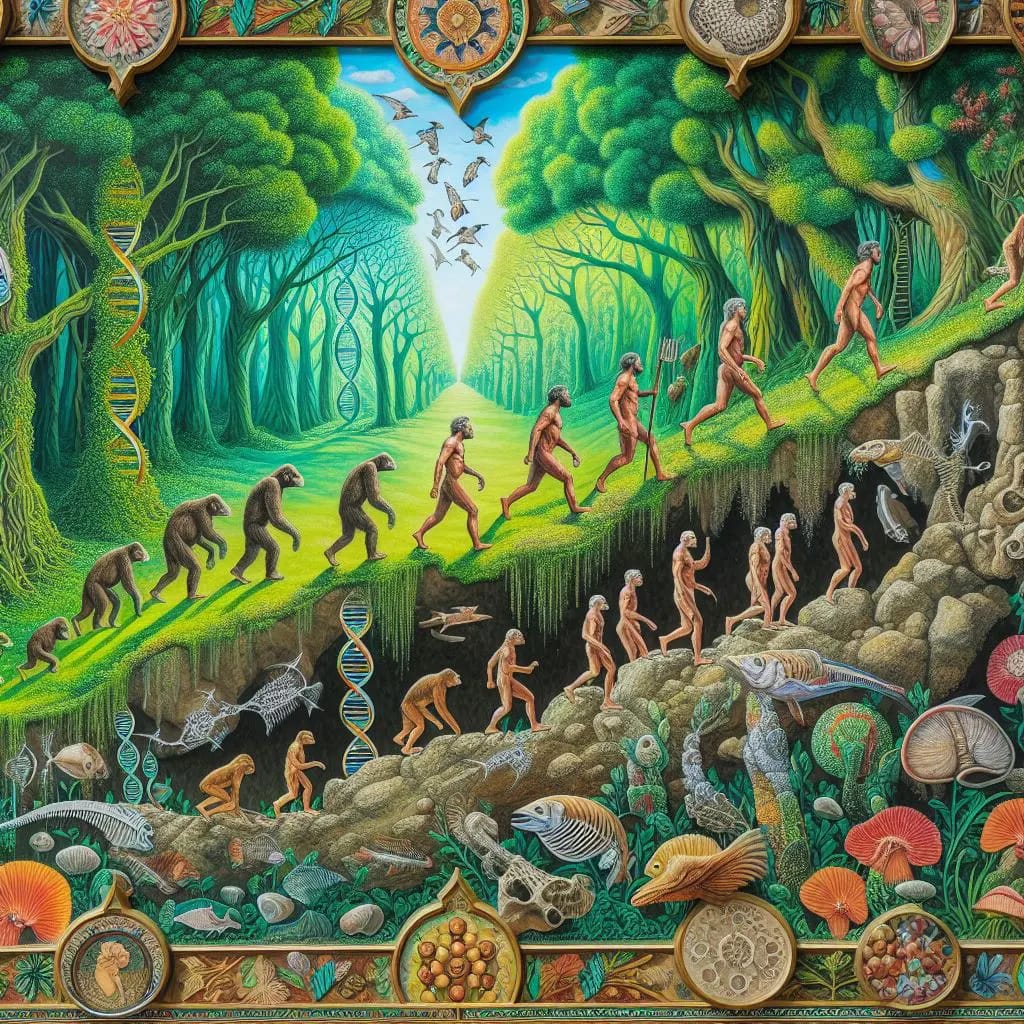What is Atheism? Religion or Philosophy?
Delving Deeper into the Definition of Atheism: An Atheist's Perspective
Atheism can be simply defined as the absence of belief in God. However, this one-sentence definition falls short of revealing the different shades and nuances of atheism. As atheists, we express our disbelief in different ways, which gives rise to different types of atheism.
Agnostic Atheism: Agnostic atheists argue that the existence or non-existence of God cannot be known. For them, the available evidence is neither sufficient to prove nor disprove the existence of God. Therefore, agnostic atheists adopt a skeptical approach to the issue, rather than making a definitive judgment.
Strong Atheism (Positive Atheism): Strong atheists assert that God does not exist. For them, belief in God is not only unfounded but also illogical and inconsistent. Strong atheists often present philosophical and scientific arguments against belief in God.
Weak Atheism (Negative Atheism): Weak atheists do not actively claim that God does not exist. They simply do not believe in God. This does not mean that they have evidence against the existence of God; it simply means that they do not have a compelling reason to believe in God's existence.
Atheism and Other Belief Systems:
Atheism can be more clearly understood when compared to other belief systems.
-
Deism: Deists believe that God created the universe but does not intervene in its workings. This is the fundamental difference between deism and atheism: While atheists do not believe in the existence of God, deists believe in God's existence but have a different understanding of God than traditional religions.
-
Pantheism: Pantheists argue that God is identical to the universe. For them, God is present in nature, the universe, and everything. This is where pantheism differs from both atheism and deism: While atheists do not believe in God, deists see God as a being separate from the universe. Pantheists, on the other hand, consider God to be one and the same with the universe.
When compared to these different belief systems, the unique stance of atheism becomes more apparent. Atheism is not just a state of disbelief but also offers a different perspective on the meaning of the universe, nature, and humanity.
Expanding Philosophical Discussions: Questioning Belief in God
As atheists, we have many philosophical arguments that question and criticize belief in God. These arguments aim to challenge traditional beliefs about God's existence and offer alternative explanations.
Arguments Against the Existence of God:
-
The Problem of Evil: The existence of pain, suffering, and evil in the world seems to contradict the existence of God. If God is an omnipotent, omniscient, and wholly good being, why is there so much evil in the world? This question has occupied philosophers and theologians for centuries and is seen as a strong argument against belief in God by atheists. 1
-
The Sufficiency of Scientific Explanations: Modern science offers natural explanations for the origin of the universe and life. The Big Bang theory explains how the universe began; the theory of evolution explains how life diversified. These scientific explanations reduce the need for the existence of God and offer an alternative explanation to belief in God for atheists.
-
Occam's Razor: Occam's razor tells us to avoid unnecessary assumptions in explaining a situation. According to atheists, belief in God is an unnecessary assumption. It is more logical to use simpler and natural explanations to explain the universe and life, rather than resorting to God.
The Moral Implications of Atheism:
Some argue that atheism leads to a moral vacuum and destroys the foundation of values. However, as atheists, we argue that morality does not originate from religion. Moral values stem from human nature, the needs of society, and our ability to reason.
Atheists can use different philosophical approaches to reach moral values. For example, humanism emphasizes the value and potential of human beings and builds moral values upon human well-being and happiness. Some other atheists explain moral values through evolutionary processes and argue that moral behaviors increase the chances of survival and reproduction.
In conclusion, atheism is a belief system shaped by philosophical inquiries into the belief in God. Atheists present various arguments against the existence of God and argue that the source of moral values is not religion. Atheism offers a different perspective on the meaning of the universe, nature, and humanity, thus bringing a different perspective to the human quest for meaning.
Enriching the Historical and Cultural Context: Atheism's Journey from Past to Present
Although atheism may seem like a new trend, its roots go back as far as human history. In different periods and cultures, there have been individuals and communities who approached the belief in God with skepticism and even rejected it.

Atheism in Antiquity:
In ancient Greece and Rome, there were philosophers who sought to explain the universe and nature through natural causes rather than attributing them to gods. Pre-Socratic philosophers like Thales, Anaximander, and Anaximenes sought to understand nature by searching for the fundamental substance of the universe (arkhe). Democritus and Leucippus developed a materialistic philosophy by arguing that everything is made up of atoms. Epicurus, on the other hand, adopted a hedonistic philosophy by suggesting that the gods were not interested in humans and that people's happiness was in their own hands. 2
The Middle Ages and the Renaissance:
During the Middle Ages, Christianity was dominant in Europe, and atheism was largely suppressed. However, in the Islamic world, some philosophers like Ibn Rushd questioned the relationship between reason and religion. The Renaissance, with its emphasis on humanism, brought human reason and experience to the forefront. During this period, some writers and thinkers emerged who were skeptical of belief in God and even considered to be atheists.
The Enlightenment and Beyond:
The 17th and 18th centuries, known as the Age of Enlightenment, witnessed the rise of rationalism, science, and individual liberties. Thinkers like Voltaire, Diderot, and Hume criticized religious dogmas and advocated a worldview based on reason and experience. During this time, atheism began to be expressed and defended more openly. 3
Modern Atheist Movements:
In the 20th and 21st centuries, atheism became more visible worldwide with the acceleration of scientific progress and globalization. A movement called New Atheism, led by authors such as Richard Dawkins, Christopher Hitchens, Sam Harris, and Daniel Dennett, began to defend atheism more aggressively. This movement criticized religious beliefs and advocated for rationalism and science.
Atheism Today and Tomorrow:
Today, atheism continues to exist as a belief system that is accepted to varying degrees worldwide. The atheist population is particularly high in Western Europe and some East Asian countries. Thanks to the internet and social media, atheists can more easily share their ideas and organize themselves.
The future of atheism is uncertain. Some believe that the influence of religion will continue to decline and atheism will become more widespread. Others believe that religion is a fundamental part of human nature and that atheism will never completely eliminate religion. However, it is clear that atheism has an important place in human history and will continue to exist in the future.
A Detailed Look at the Geographical Distribution of Atheism: Why is Atheism More Common in Some Regions?
Atheism does not show a homogeneous distribution worldwide. While the atheist population rate is quite high in some regions, atheism is almost non-existent in others. Understanding the reasons behind these differences can provide important clues about the nature of atheism and its impact on societies.
The Relationship of Atheism with Socio-Economic Factors:
Research shows that countries where atheism is widespread generally have high levels of education, income, and living standards. This situation can be interpreted as an increase in education and welfare levels reducing people's dependence on religious beliefs and developing their critical thinking skills. 4
Furthermore, people living in a safe and stable environment may feel less need to address their existential concerns through religion. This suggests that socio-economic development plays a role in the spread of atheism.

Cultural and Political Impacts of Atheism:
Atheism is not just an individual belief system but also affects social values and political order. The principle of secularism requires the state to protect freedom of religion and conscience and not to favor any religious belief or disbelief. Atheists, as advocates of secularism, demand that the state be independent of religious institutions and that everyone can freely practice their beliefs.
In societies where atheism is widespread, scientific thought and rationality are generally valued more. This manifests itself in many areas, from the education system to art, from literature to politics. Atheists' advocacy for the guidance of reason and science for the progress and development of society increases the impact in these areas.

The Future of Atheism:
While it is difficult to say anything definitive about the future of atheism, current trends may provide some clues. Globalization, the internet, and social media make information more accessible, allowing people to encounter different thought and belief systems. This could reduce adherence to religious beliefs and lead to greater acceptance of atheism.
However, it is also true that religion has played an important role throughout human history and is a source of meaning and purpose for many people. Therefore, it seems unlikely that atheism will completely eliminate religion. Instead, the interaction between atheism and religion can be expected to continue shaping the cultural and political fabric of societies.
In conclusion, the geographical spread of atheism is the result of a complex interaction of socio-economic, cultural, and political factors. High levels of education and prosperity in regions where atheism is widespread, the importance given to the principle of secularism, and the prevalence of scientific thought enable this belief system to be more widely accepted. Although the future of atheism is uncertain, its important place in human history and its impact on societies cannot be denied.
Conclusion: Atheism, A Different Path in the Search for Meaning
Atheism, a belief system that has existed throughout human history, is increasingly gaining acceptance today. Defined as the absence of belief in God, atheism is not merely a disbelief but also offers a different perspective on the universe, nature, and humanity. This article explored various aspects of atheism to better understand this thought system, examining its different types, philosophical foundations, historical and cultural development, and geographical distribution.
As atheists, we possess numerous arguments that question and critique the belief in God. Arguments such as the problem of evil, the sufficiency of scientific explanations, and Occam's razor challenge traditional beliefs about the existence of God. However, atheism is not solely a critique but also an alternative quest for meaning. Atheists argue that morality does not originate from religion, but rather stems from human nature, societal needs, and our ability to reason. Therefore, atheism does not lead to a moral vacuum; instead, it establishes moral values on a different foundation.
The history of atheism extends from antiquity to the present day. Throughout different periods and cultures, individuals and communities have existed who approached the belief in God with skepticism or even outright rejection. Atheism became more visible with the Age of Enlightenment and reached wider audiences through modern atheist movements. The geographical spread of atheism is the result of a complex interplay of socio-economic, cultural, and political factors. High levels of education and prosperity, the emphasis on secularism, and the prevalence of scientific thought contribute to the greater acceptance of atheism.
While the future of atheism remains uncertain, the significant role of this thought system in human history and its impact on societies cannot be denied. Atheism offers an alternative path for those who are not satisfied with the answers provided by religion and are seeking a different meaning. In conclusion, atheism is not merely a state of disbelief but a rich and complex belief system that offers a different perspective on the universe, nature, and humanity. By providing a different path in the search for meaning, atheism encourages individuals to question their own values and beliefs and find their own answers.
Sources:
- Stanford Encyclopedia of Philosophy – The Problem of Evil: https://plato.stanford.edu/entries/evil/[↩]
- Stanford Encyclopedia of Philosophy – Ancient Atomism: https://plato.stanford.edu/entries/atomism-ancient/[↩]
- Stanford Encyclopedia of Philosophy – Atheism and Agnosticism: https://plato.stanford.edu/entries/atheism-agnosticism/[↩]
- Pew Research Center – The Global Religious Landscape: https://www.pewforum.org/2012/12/18/global-religious-landscape-exec/[↩]



